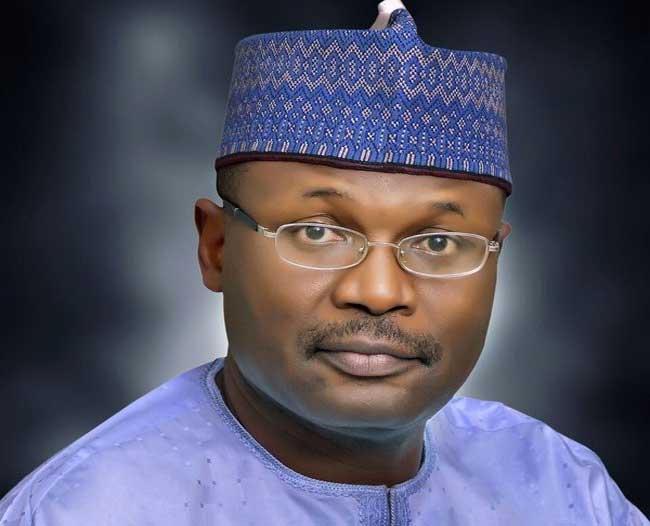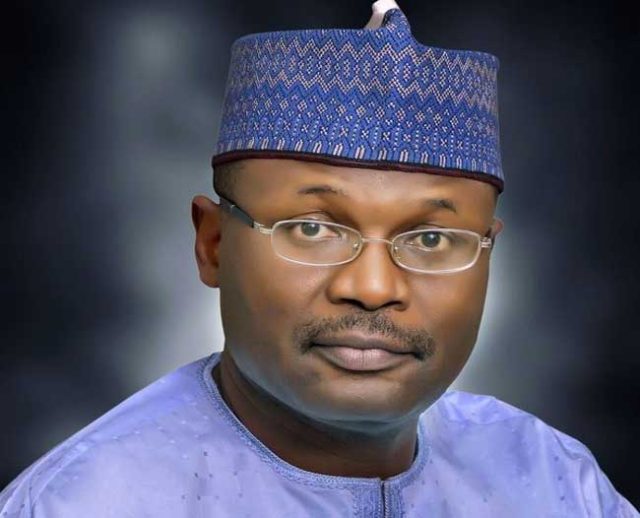Democracy & Governance
Party Time: Having A Good Party At INEC -By Micheal A. Adeniyi


INEC Boss
Its party time again, something good have just happened to some group of people who just got their party registered, the Independent National Electoral Commission, INEC has published a list of 10 new political parties.
The parties, according to INEC, are :
Better Nigeria Progressive Party (BNPP)
Democratic Alternative (DA)
Masses Movement of Nigeria (MMN)
National Action Council (NAC)
National Democratic Liberty Party (NDLP)
Nigeria Elements Progressive Party (NEPP)
National Unity Party (NUP)
Nigeria Peoples Congress (NPC)
Peoples Progressive Party (PPP)
Peoples Redemption Party (PRP).
This brings the number of registered political parties in Nigeria to 40.
Oh Yeah! Nigerians love to have parties and distrust them too. More people distrust parties than trust them. People keep flocking to parties, becoming members, seeking tickets, because they see parties as a necessary link between themselves and “politics”. Identification with parties has taken a beating as not trusting parties and yet identifying with them poses immense challenges for established parties and new, idealistic ones, such as (KOWA Party). Some few challenges require urgent attention to stem the drag that party politics faces.
It may seem paradoxical, but parties which must be in the business of fighting elections need also to limit electoral overenthusiasm and desist from being overwhelmed by electoral activism. There is an urgency in an electoral battle, but the task of any party should be to cultivate long-term loyalties that remain intact, irrespective of electoral upsets, community or personal bonding with a larger-than-life leader. Most parties in Nigeria adopt personal loyalty to leaders. However, more important than personality cults, the crucial issue is engaging in elections while building an organisation to engage with electoral politics on a durable and continuous basis.
Party building also involves membership building, not just membership drives. A party will attract numbers if it has popular leadership and a whiff of electoral success. The challenge for the party is to filter entrants, particularly when giving tickets. However, the task of training party members at the grassroots level is the most challenging one. The so-called mainstream parties have practically abandoned this and the results are there for anyone to see. It is alway a party ending in disaster, I mean a party that doesn’t require any screening or training. Thus, on the one hand, parties (new parties in particular) must guard against getting overwhelmed by an “elections at all costs” policy. On the other hand, they also need to invest in building cadres because only then will they be able to ensure that their members are dependable and trustworthy.
Parties believing in the political agency of the lay citizen invite citizens to participate. However, the challenge of balancing “party work” and livelihoods of members remains unresolved.
Being a party sympathiser is easy, being a party worker is a challenge. So, parties honestly wishing citizens’ participation should evolve innovative methods of citizens’ engagement without jeopardising their livelihoods.
The challenge is to ensure the financially better-off wouldn’t have a monopoly on politics. The political class is a product of this challenge. Because ordinary citizens cannot easily participate in politics, a self-appointed professional class of politicians emerges and begins to appropriate democratic space. Therefore, new ways must be imagined by which citizens can easily and routinely associate with parties, without risking their livelihoods.
The issue of resources is also vital, “mainstream” parties have defied democratic norms and distorted public policy to generate resources on a huge scale. The idea of running a party on popular contributions has become extremely unviable. For new parties, meeting this challenge is possible only if they avoid the ostrich-like approach that money is not required and parties can be run on shoe-string budgets. For established parties, the challenge is to show the courage of coming out of the mess of corruption they have evolved over time.
A party must also constantly renew its popular base by engaging in movements involving people. At the same time, a party must be prepared to become a government. This dual life, of movement and party, is a tough challenge. Being a movement-party is fine as long as the party is “fighting” against the system. Once it enters the electoral arena in earnest, the challenge of imagining governance issues becomes equally important. Parties either miss out on governance skills or lose the enthusiasm for their movement. While the Congress typically always remained a party of government and neglected, to its own peril, the movement dimension, many small non-Congress parties driven by ideologies of transformation have also failed in having the imagination to exercise formal power.
@9jaclicktivist

















